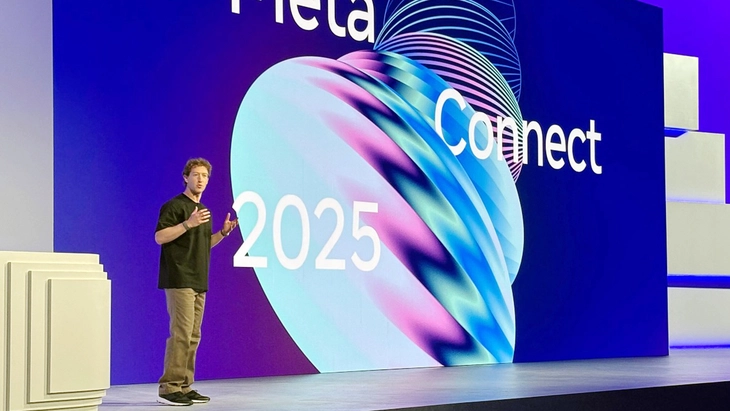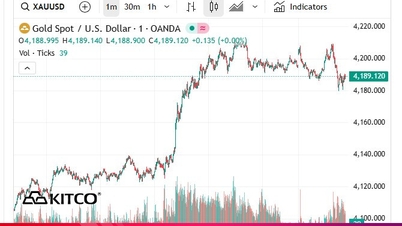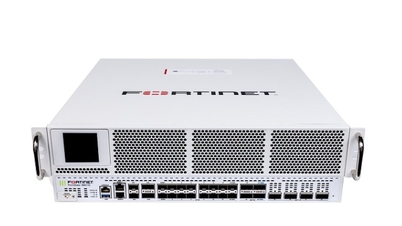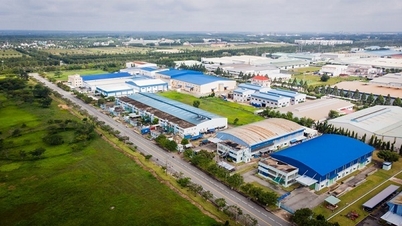
CEO Mark Zuckerberg speaks at the Meta Connect 2025 conference in Menlo Park, California in September
Investors are expressing deep reservations about unusual developments in the technology bond market.
Companies like Alphabet (Google), Meta, Microsoft and Oracle have seen their bonds fall sharply in recent weeks, forcing the market to re-price risk in the face of an unprecedented thirst for AI capital.
Bond issuance increased to a record high
The corporate debt market has seen a series of blockbuster bond issuances with maturities of up to 40 years, according to the Financial Times. Meta is a prime example, after agreeing to borrow $27 billion to develop its Hyperion data center, the company issued an additional $30 billion in bonds at the end of October – the largest deal since 2023.
CEO Mark Zuckerberg did not hesitate to affirm that Meta will spend hundreds of billions of dollars in the next decade to develop human-level AI.
Not far behind, Alphabet also raised $25 billion through bond issuance in early November alone, while Oracle issued $18 billion in September mainly to fund large projects such as OpenAI's Stargate data center.
The spread between the yields of these corporations and US Treasury bonds has widened to 0.78 percentage points - the highest since April when markets were roiled by President Trump's tax plan, and up sharply from 0.5 percentage points in September, according to Bank of America data.
“What the market has realized over the past two weeks is that public capital markets will have to bear the bulk of the cost of this AI craze,” said Brij Khurana, fixed income portfolio manager at Wellington Management.
Estimates from JPMorgan suggest that building AI infrastructure could cost more than $5 trillion, requiring the participation of all public capital markets, along with private credit, alternative sources of funding, and even government support.
Increased financial leverage
AI infrastructure spending is outpacing previous technology cycles. Google, Amazon, Microsoft, and Meta spent more than $350 billion in 2025 and are expected to surpass $400 billion by 2026 on data centers alone.
Despite holding about $350 billion in cash and short-term investments, according to JPMorgan estimates, these corporations have still massively issued bonds - a strategy that has many investors worried about increasing financial leverage.
The surge in new bond issuance is creating clear pressure, with Oracle the hardest hit, with its bonds down nearly 5% since mid-September. The company has $96 billion in long-term debt and is continuing to borrow more.
Bank of America warns that high spending near cash flow limits, especially when interest rates rise or profits slow, increases credit risk.
Notably, legendary investor Michael Burry has just warned that technology corporations providing large-scale cloud computing infrastructure may be inflating profits through depreciation calculations, according to Business Insider.
Because semiconductor chips like Nvidia's have relatively short life cycles, Mr. Burry estimates that these corporations will record an understatement of depreciation costs by about $176 billion between 2026 and 2028.
He predicts that by 2028, Oracle could overstate earnings by about 26% and Meta by about 20%.
Despite the warnings, experts remain cautiously optimistic, noting that AI investments are now deeply integrated into business models and economic productivity, unlike the dot-com bubble of the past.
For bond investors, the strong cash flows of companies like Meta—with operating cash flow of $30 billion last quarter—provide reassurance about solvency.
Robert Cohen at DoubleLine Capital said the capital markets are still willing to fund, as long as it is structured properly, because the revenue potential from AI collaborations remains attractive enough to alleviate concerns.
Positive signal
As tech companies ramp up debt to fund AI spending, some analysts see the decline in bond prices as a positive sign, reflecting that the market is still pricing risk appropriately.
“As long as the market is responding to increased risk, that’s a healthy sign,” said George Pearkes, macro strategist at Bespoke Investment Group.
What's more worrying, he said, is that bond prices are rising despite the massive new debt supply pouring into the market, noting that we're "only in the early stages of the debt cycle" in this whole AI race.
Source: https://tuoitre.vn/bao-no-ai-keo-trai-phieu-cong-nghe-lao-doc-20251113064451727.htm



![[Photo] The "scars" of Da Nang's mountains and forests after storms and floods](https://vphoto.vietnam.vn/thumb/1200x675/vietnam/resource/IMAGE/2025/11/13/1762996564834_sl8-jpg.webp)


































![[Photo] Prime Minister Pham Minh Chinh attends a conference to review one year of deploying forces to participate in protecting security and order at the grassroots level.](https://vphoto.vietnam.vn/thumb/1200x675/vietnam/resource/IMAGE/2025/11/12/1762957553775_dsc-2379-jpg.webp)































































![Dong Nai OCOP transition: [Article 3] Linking tourism with OCOP product consumption](https://vphoto.vietnam.vn/thumb/402x226/vietnam/resource/IMAGE/2025/11/10/1762739199309_1324-2740-7_n-162543_981.jpeg)








Comment (0)